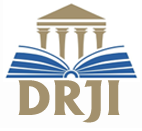PENGARUH MANAJEMEN KESISWAAN TERHADAP PRESTASI PESERTA DIDIK DI MTs 16 PERBAUNGAN
Abstract
This study aims to examine the effect of student management on student achievement at MTs 16 Perbaungan. As for the indicators for student management variables include student admissions, student council, and extracurricular, while indicators for student achievement variables include cognitive aspects, affective aspects, and psychomotor aspects. This study uses a quantitative approach using primary data through questionnaires. The results of the tests that have been carried out show that the distribution of scores in the student management variable (X) average class as many as 14 people (17.07%) are below the class average, 4 people (4.88%) are in the class average and as many as 64 people (78.5) above the average. The distribution of Student Achievement variable scores (Y) as many as 20 people (24.39%) are below the interval class average, 6 people (7.32%) are in the interval class average and 54 people (65.8%) are above the average . Shows that the correlation coefficient between the Student Management variable (X) and Student Achievement (Y) is 0.129 with a coefficient of determination (r2) obtained from the calculation results of 0.017 which means that Student Management (X) provides a low relationship of 0.017x 100% = 1.7% of Student Achievement (Y). Based on the analysis conducted above, it is known that the proposed hypothesis is accepted and has been tested empirically. The results of the hypothesis analysis show that there is a very weak and significant influence between Student Management (X) and Student Achievement (Y) of 0.129 with a coefficient of determination (r2) obtained from the calculation results of 0.017 which means that Student Management (X) has an influence very weak at 0.017 x 100% = 1.7% towards Student Achievement (Y). Furthermore, to determine the significance of the influence of the two (Student Management on Student Achievement) it can be seen through the t test". Through the t-test that has been carried out, it turns out that tcount = 3,004 while the value of t table = 2,028. Because tcount (3.004) > ttable (2.048), this indicates that there is a low but significant effect between Student Management variables on Student Achievement in the form of a linear relationship through the regression line = 76.296 + 0.017 X. The equation of this regression line explains that if If the Student Management factor increases by one unit, the Student Achievement will also increase by 76.296 + (0.017) = 10,747 units.
Student Achievement
Full Text:
PDFReferences
BakarRosdayana. A, Dasar-Dasar Kependidikan, (Medan: CV Gema Ihsani, 2015)
Hidayat, Rahmad dan Wijaya, CandraAyat-Ayat Alquran Tentang Manajemen Pendidikan Islam, (Medan: LPPPI)
As-Suyuthi, Jalaluddin,Asbabun Nuzul: sebab turunya ayat alquran, (Jakarta: Gema Insani, 2008)
Djamnari, Syaiful Bahri, Prestasi Belajar dan Kompetensi Guru, (Cet I; Surabaya Usaha Oset Printing, 1991)
Dimyanti dan Mudjiono, Belajar dan pembelajaran(Cet. IV; Jakarta: PT. Rineka Cipta, 2009)
Sudjana, Nana,Dasar-Dasar Proses Belajar Mengajar (Cet Ke -5; Bandung: Sinar Aglesindo, 2000)
Hidayanti, Rohma, (2019), Pengaruh Manajemen Kesiswaan Terhadap Minat Belajar Siswa kelas X Di MAN 2 Ponogoro Tahun Pelajaran 2018/2019
Chaniago, Nasrul Syakur,2011. Manajemen Organisasi, Cet.1. Bandung : Ciptapustaka Media Perintis
Mesiono. 2009. Manajemen dan Organisas, Bandung : Media Perintis
Bafadal, Ibrahim. 2004. Manajemen Perlengkapan Sekolah, Jakarta : Bumi Aksara
Siagian, Sondang. 2000. Administrasi Pendidikan, Cet. III. Jakarta : Rineka Cipta
Hasibuan Malayu S. P. 2001. Manajemen : Dasar, Pengertian, Dan Masalah, Cet. III. Jakarta : Bumi Aksara,
Sutopo. 2000. Administrasi, Manajemen dan Organisasi, Cet. VI. Jakarta : Lembaga Administrasi Negara,
Dapartemen Pendidikan Nasional, 2013, Kamus Besar Bahasa Indonesia Pusat Bahasa, Jakarta: PT. Gramadia Pustaka Utama, 2013)
Undang-Undang RI No 20 Tahun 2003 tentang Sistem Pendidikan Nasional
Ahmadi, Abu dan Nur Uhbiyati, 1991, Ilmu Pendidikan, Jakarta : PT. Rineka Cipta,1991
Ar-Rahili, Wahbah,At-Tafsir Al-Munir (Fil’aqidah Wasyari’ah Walmanhaj), (Beirut, Libanon : Darul Fikri Al-ma’ashir, 1991M/1411H)
Qomar, Mujamil. 2010. Manajemen Pendidikan Islam, Jakarta: Erlangga,
Mantja, W. 2007, Profesionalisasi Tenaga Kependidikan, Manajemen Pendidikan Dan Supervise Pengajaran, Malang: Elang Mas
Mulyono, 2008, Manajemen Administrasi dan Organisasi Pendidikan, Yogyakarta: Ar-Ruzz Media,
Burhanuddin. 2000. Analisis Administrasi, Manajemen Kepemimpinan Pendidikan, Cet. IX, Jakarta : Bumi Aksara
Imron, Ali. 2005. Manajemen Peserta Didik Berbasis Sekolah, Cet. IV. Jakarta: DP3M Depdiknas,
Depatermen Pendidikan Nasional, 2007, Manajemen Kesiswaan (Peserta Didik), Jakarta: Diknas,
Direktorat Tenaga Kependidikan. 2007. Manajemen Peserta Didik, cet.1 Jakarta : Kemendikbud RI
Syarifuddin. 2005. Manajemen Lembaga Pendidikan Islam, Cet. 1. Medan : Ciputat Pers, h, 262
Usman, Husnaini. 2008, Manajemen Teori, Praktik dan Riset Pendidikan, Jakarta: Bumi Aksara
Djamari, Syaiful Bahri, Prestasi Belajar dan Kompetensi Guru, (Cet I; Surabaya Usaha Oset Printing, 1991)
Slameto, Belajar dan Faktor-Faktor Yang Mempengaruhinya (Cet. Ke-5; Jakarta: Rineka Cipta, 2010)
Sahabuddin, Mengajar dan Belajar (Cet. Ke-2; Makassar: Universitas Negeri Makassar, 2003)
Sardiman, Interaksi Dan Motivasi Belajar Mengajar (Cet. Ke-11; Jaarta: PT RajaGrafindo Persada, 2004)
Suryabrata, Sumadi,Psikologi pendidikan (Jakarta; PT. Raja Gravindo Persada. 1998)
Azwar, Syaifuddin,Realibitas dan Validitas (Yogyakarta: Pustaka Belajar, 1997)
Sugiyono, (2012), Metode Penelitian Kuantitatif Kualitatif dan R&D, Bandung: Alfabet CV
Indra Jaya, Statistik Penelitian Untuk Pendidikan, (Bandung: CitaPustaka Media Perintis, 2010)
DOI: http://dx.doi.org/10.30821/hijri.v10i1.11250
Refbacks
- There are currently no refbacks.
Copyright (c) 2022 Hijri
Organizational Collaboration:
Hijri: Jurnal Manajemen Kependidikan dan Keislamanhas been indexed by:
Jurnal Hijri by Program Studi Manajemen Pendidikan Islam FITK Universitas Islam Negeri Sumatera Utara is licensed under a Creative Commons Attribution-NonCommercial-ShareAlike 4.0 International License.










2.png)


